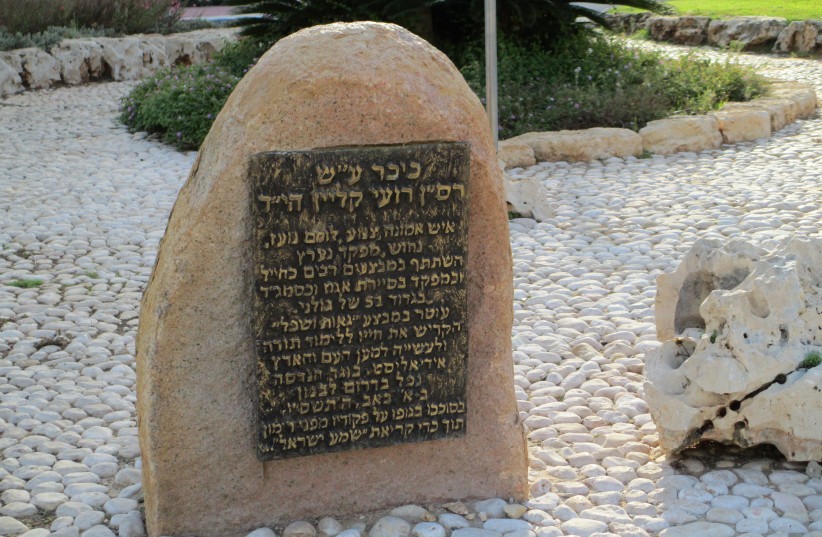July 26 marks the 17th anniversary of the heroic sacrifice made by Roi Klein, an Israeli soldier whose selfless act of bravery during the 2006 Lebanon War left an indelible mark on the hearts of his fellow soldiers and the nation of Israel.
Roi was born on July 10, 1975, in Raanana to two Holocaust survivors. After completing high school, Roi pursued his studies at the Bnei David Mechina in the West Bank settlement Eli, where he delved into Jewish religious texts and underwent rigorous physical training in preparation for his military service.
He was drafted into the IDF in August 1994 and joined the Paratroopers Brigade.
During his service, the second Lebanon War was in full swing, and the IDF was battling Lebanese guerillas in the Israeli security zone in southern Lebanon.
To counter these threats, the elite Egoz Unit was established as part of the Golani Brigade, and Roi was among its founding members. His exceptional skills and leadership abilities allowed him to rise through the ranks.

In August 1998, Roi was honorably discharged from the army, but his passion for service and dedication to his country did not wane.
After a period of Torah study and traveling, he returned to military service to supervise training procedures in the Egoz Unit. His training plan became a model for the unit's success.
In the face of danger, Roi consistently demonstrated courage and leadership. During the Israeli withdrawal from southern Lebanon in 2000, he found himself leading a critical mission in the Bint Jbeil area.
When a premature IDF withdrawal left his unit trapped in Lebanon, Roi orchestrated their extraction by helicopter, ensuring their safe return.
In 2001, during the Second Intifada, Roi's exceptional tactical acumen led to the elimination of five Palestinian terrorists during an ambush in the Nablus area, earning him a commendation. The same year, he found love and married his wife, Sarah, who was originally from Denmark.
Despite his military commitments, Roi was determined to pursue further education. He enrolled in a special program for military personnel, and despite being accepted into the prestigious Technion school, he chose to study at the Ariel University Center of Samaria, where he could continue his religious studies at the Kollel in Eli. He graduated with honors in Industrial Engineering and Management.
2006 Second Lebanon War
In 2006, Roi reached the pinnacle of his military career when he was appointed deputy commander of the 51st Battalion of the Golani Brigade.
During the 2006 Second Lebanon War, Roi and his unit participated in the grueling Battle of Bint Jbeil.
It was during this intense confrontation that the defining moment of Roi's life occurred. Caught in a Hezbollah ambush, a live grenade was hurled over the separation wall toward Roi and his fellow soldiers.
In an act of unparalleled bravery and devotion to his soldiers, Roi fearlessly jumped on the grenade, using his own body to muffle the explosion and protect the other soldiers.
Witnesses said that even in that harrowing moment, Roi recited the Shema Yisrael, a prayer traditionally recited at night before going to sleep and by people who are dying.
The explosion critically wounded Roi, but he did not lose sight of his responsibilities as a leader.
He reported his own death over the radio, urging his fellow soldiers to focus on the care of Lieutenant Amichai Merhavia, who had also been injured and later succumbed to his wounds.
Lying on the battlefield, Roi handed over his encoded radio to another officer, ensuring that command was transferred over and his unit could continue to fight effectively.
Moments later, he succumbed to his injuries, leaving behind a legacy of courage, leadership, and sacrifice.
Roi was 31 years old when he was killed and is, to this day, one of the most famous Israeli war stories.
